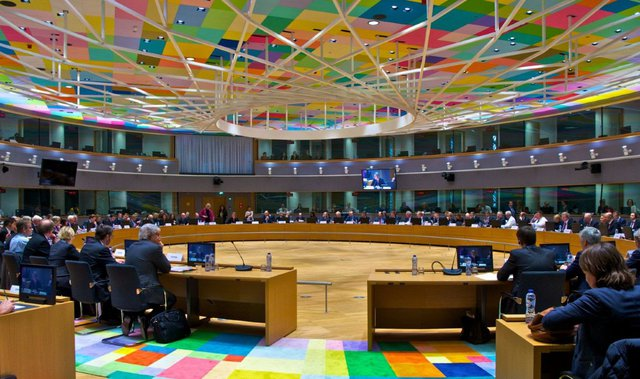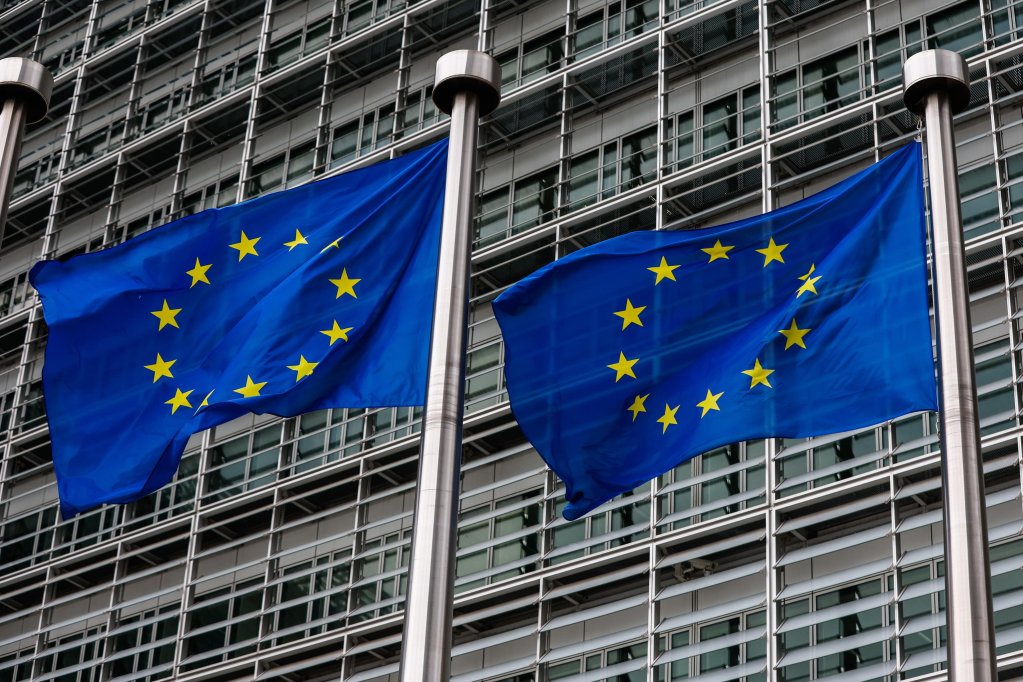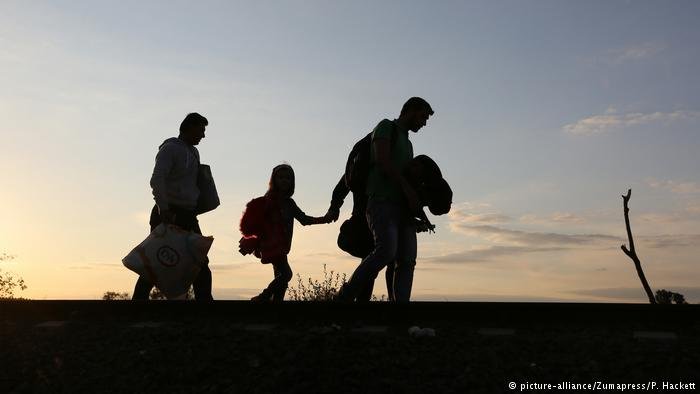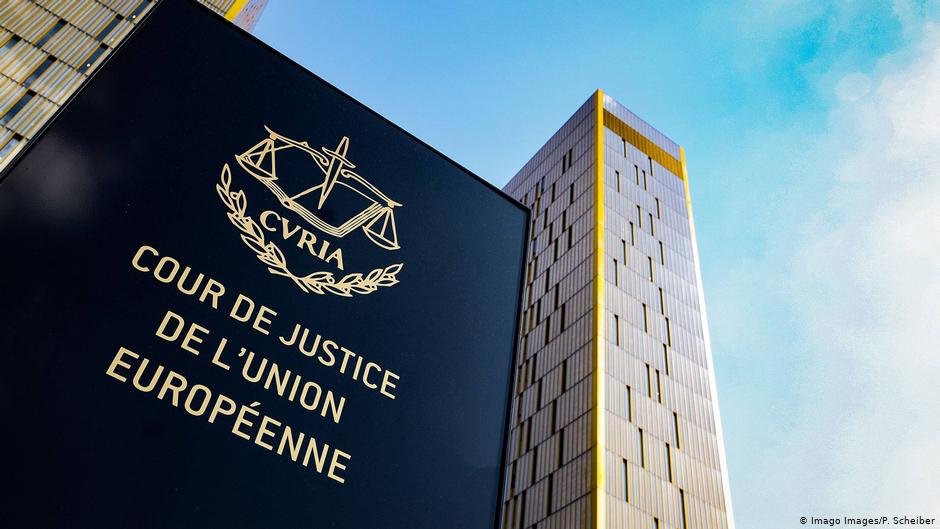Hungary will take over the EU's rotating presidency on July 1. Critics fear Orban will disrupt EU support for Ukraine and other key issues, including asylum and migration policy. Hungary, however, insists it will act as an "honest broker."
Hungary will assume the rotating presidency of the Council of the EU next week on July 1, amidst concerns that Prime Minister Viktor Orban might exploit this position to disrupt the EU. His government has frequently clashed with the EU over issues like Ukraine aid, migration, and the rule of law, often using its veto to secure more funds.
The EU presidency rotates among its member countries. The post holds little real power but it does allow countries to put national priorities high on Europe’s agenda.
Within the EU, Orbán has gained a reputation as the "provocateur-in-chief", but Hungary insists it is aiming for a "normal, successful period" according to Politico. However, the motto “Make Europe Great Again” of its upcoming presidency hints at potential discord.
German MEP Daniel Freund (Greens), a fierce Orbán critic, stated in a press release that "using the Trump slogan for this Council presidency is absolutely tasteless ... The phrase shows where Orban wants to lead the EU: into autocratic conditions. The fact that he – the first autocrat ever – is allowed to fill this top position in the EU is unacceptable."

Hungary’s EU Affairs Minister János Bóka claims this is a reference to an "active presidency,” outlining the program and ambitions for its six-month term. Speaking to reporters, he stated that while it shows the expectation that "together we should be stronger than individually, but that we should be allowed to remain who we are when we come together."
Neverthless, Brussels remains skeptical, and diplomats are concerned about potential negative impacts on EU support for Ukraine, migration and other key issues. In the past, Hungary has delayed sanctions against Russia, blocked military aid to Ukraine, rejected the EU's migration pact and failed to uphold the rule of law, leading the EU to withhold funds.
A 'nightmare' for Brussels bureaucrats
Hungarian Prime Minister Viktor Orbán, who leads a staunchly nationalist government, has long been a thorn in the side of the EU. He is an ally to former US president Donald Trump and is considered to be closest to Russian President Vladimir Putin among the EU’s 27 leaders.
Despite Orbán's party experiencing its worst performance in an EU election since Hungary joined the bloc 20 years ago, he may still capitalize on the EU's post-election rightward shift to consolidate his influence.

The tweet pinned to the top of Viktor Orban's X feed (at the time of writing, June 27, 2024) reads "National conservative, sovereignist and Christian forces are on the rise all across Europe. We don’t represent #progressive ideas, we represent the people. We are the worst nightmare of the #Brussels bureaucrats."
Although this could be viewed as political posturing, there is at least some fear in Brussels as to what the Hungarian EU presidency will mean for the bloc and its common migration policy.
It is worth noting that Hungary’s presidency does not coincide with a key legislative period, with Member States agreeing on the migration pact earlier this year. Therefore it is more likely that the presidency will be more political, with a focus on international relations rather than legislative work.
Orbán has also tried to portray himself as a peacemaker on the war in Ukraine and as a key anti-migration figure who is protecting the EU's external borders. He may leverage his presidency to strengthen ties with controversial figures like Trump, Putin, and China's president Xi Jinping.
Also read: Hungary's 'legal' pushbacks lead to more border violence
Migration as a central policy
Hungary, along with Poland, voted against the EU's new pact on migration and asylum, which includes a "mandatory solidarity" system requiring countries to either relocate asylum seekers, pay €20,000 per rejected applicant, or provide operational support.
The new pact, a significant overhaul aimed at ensuring fair distribution of asylum responsibilities across the EU, includes measures for stricter screening, health and security checks at borders, and faster examination procedures. Despite the opposition from Hungary and Poland, the reform passed with a qualified majority and is set to be implemented over the next two years. The European Commission has warned of legal action against non-compliant countries, a process that could take years.

Speaking to InfoMigrants, Hungarian MEP Balázs Hidvéghi (Fidesz) said the pact "will not change anything, as it builds on already failed measures such as quotas and the redistribution of migrants across the EU." He also accused EU institutions of "pro-migration ideology" calling the EU's current migration policy "ineffective" and "against the interests of Europeans".
Due to its geographical location, Hungary has long been a transit country for migrants and refugees seeking to move on to other EU member states, with very little support or resources for new arrivals to remain. Orbán's party claims that its policies, which include both physical and legal barriers, are protecting the EU's external borders and the bloc as a whole.
Hardline migration policies
Hidvéghi states that "migration needs to be stopped, not managed. We cannot allow migrants to abuse our asylum systems and break our laws."
It is worth noting, however, that Hungary's current asylum system has been completely externalized and requires asylum seekers to file a statement of intent at embassies in Belgrade or Kyiv, if approved they can travel to Hungary to submit their asylum application. This system effectively makes it impossible to claim asylum on Hungarian soil, since May 2020, only 21 people received this travel permit.
Hidvéghi claims that the current approach in Brussels "encourages migration to Europe". He argues that politicians are sending "the wrong message" to people all over the world making it seem like "Europe will welcome everyone, and attack countries within the EU that reject this pro-migration stance.”
Hungary's harsh anti-migration policies have arguably done very little to stop irregular migration, rather making the journey more dangerous for those fleeing violence. And while Hungary's politicians are loudly demonizing migrants in public, like many EU countries it is facing a worker shortage and is now looking to India and the Philippines to bolster its workforce.
There are concerns that its hardline approach and the lack of constructive dialogue will make it very difficult for other EU member states to work together with Hungary on areas such as migration.
Also read: Is Hungary pushing migrants into the arms of smugglers?
Anti-migrant rhetoric
For the current government of Hungary, "anti-migrant, anti-refugee rhetoric is really central," says Anikó Bakonyi, director of the refugee program at the Hungarian Helsinki Committee. "They invested really heavily into this propaganda," she explains. With lots of public ads, and poster campaigns all through the country.
Adél Sarolta Szabó, project leader at Menedék a Hungarian association for migrants, explains that around 2015, the government started to use word 'migrant', with a negative connotation. Differentiating migrants from asylum seekers, and portraying them as people who "want to come here to take our jobs." She notes that "this is the propaganda which the government has been repeating, for almost 10 years."

"It makes our work harder, because it's really hard for migrants to find jobs, to rent a flat, and also deal with administrative issues. And so it's harder for us to help them in these issues," says Sarolta Szabó.
Although, she points out that "it's not just the far right, which is influencing the immigration policy of our country, it's also populism and fear. It's easier to manipulate people and be a good populist leader if people fear something."
However, since Russia invaded Ukraine, the government's anti-migrant rhetoric appears to have been less effective, with Ukrainian refugees receiving a warm welcome, leading to a subsequent shift in the perception of refugees.
"We've seen a lot of solidarity, and a warm welcome from the general population, which is even more remarkable, after years and years of hate campaigning against refugees and migrants," says Bakonyi. "So it is likely that this anti migrant card may become a bit more difficult to play in future."
Also read: Seeking asylum in Hungary: Does the current system violate European asylum law?
Frozen funds
Although the EU presidency is largely symbolic, allowing the country to chair meetings and set agendas, critics fear Orbán will use it to push for the release of 19 billion euros in frozen EU funds.
In recent years, Hungary has become an outlier in the EU and NATO. Orbán has previously watered down EU sanctions against Russia and opted out of NATO plans to provide more support to Ukraine. Earlier this year, EU lawmakers even called for the presidency to be taken out of his government’s hands.
Hungary's persistent non-compliance with EU migration laws has led to formal legal actions and financial consequences, reflecting the Commission's stringent measures to enforce EU regulations. The European Commission has frozen billions of euros in funds to Budapest over concerns about democratic backsliding by the government.
Earlier this month the ECJ fined Hungary 200 million euros and imposed a daily one-million-euro penalty for not following the bloc’s asylum laws and illegally deporting migrants.

The ECJ stated that Hungary has deliberately evaded compliance despite a 2020 ruling, leading to this unprecedented fine. Orbán expressed outrage, arguing that the EU prioritizes irregular migrants over its own citizens.
A spokesperson from the European Commission told InfoMigrants that the Commission uses "various tools" to ensure EU law compliance by member states, including dialogue and infringement procedures. In Hungary's case, the Commission has taken it to the European Court of Justice (ECJ) for violating migration and asylum policies.
Hungary's breaches of asylum rights and non-refoulement principles have led to the blocking of reimbursement for certain expenses under the Asylum, Migration, and Integration Fund (AMIF). The only expenses currently unblocked are the Legal Migration and Integration expenses (17.68 million euros). Other funds, like the Border Management and Visa Instrument (BMVI) and the Internal Security Fund (ISF), are not affected by these compliance issues.
Hungary's EU affairs minister Bóka acknowledged the presidency will be closely scrutinized, telling Politico: "We will be watched very closely whether we cooperate sincerely...and whether we will be honest brokers," adding that Hungary will meet the higher standards expected of it.
However, Freund warned not to be fooled by Orban's ambitious and soft-spoken program over the next six months, "because at the EU level, the government is primarily pursuing one goal: to free up frozen EU funds."
Also read: EU fines Hungary €200 million for flouting asylum laws
